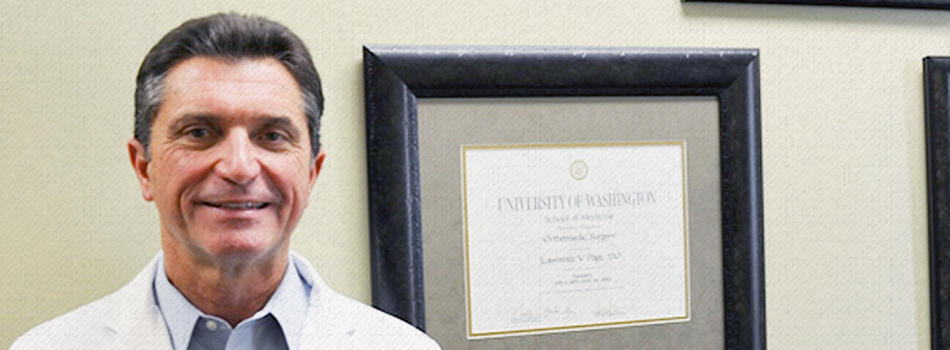
Dr. Larry Page is a Doctor of Osteopathic Medicine (D.O. or DO) currently based in Tulsa, Oklahoma. The Brainlab.org team interviews Dr. Page about his background, practice, and thoughts on patient education.
Q: What is your background?
A: I was born and raised in East St. Louis, Illinois – the worst of inner city USA. This is the least likely origin of a physician and surgeon. My father was a small business owner and electrical contractor. My childhood through college was occupied by my father’s business, where I learned mechanics, structure, and basics of engineering. I consider this experience just as valuable as academia to my education.
Q: How did that lead to medicine?
A: I evolved my background more formally and completed my Bachelors of Science in Biology. Surrounded by buddies that went into Medical School, I completed my Masters of Science in Biochemistry at Illinois State University and went to Medical School at Midwest University in Chicago.
The USAF and Gulf War occupied the next four years and in 1993, I began private practice in Joplin, Missouri.
Q: So, why orthopedics?
A: Coming from a field that deals with the design and analysis of structures that support or resist weight, Orthopedics was a natural next step. My interest began with a rotation at Wilford Hall in San Antonio, Texas. My engineering roots fostered a love for fixing things – broken things – and didn’t mind the late nights. I went onto complete my orthopedic residency at University of Washington in Seattle.
Q: What does software-guided surgery mean to you?
A: As my practice matured I began using Navigation Surgery as adjunct to adult reconstruction. I see Navigation as an integral part of my practice and have used this technology to correct many malunions of the femur and total knee replacements. I believe it is the expected technical and scientific progression of orthopedics, which is of special relevance to me with my engineering background.
Q: How do you educate patients and others on what you do?
A: Educating patients, hospital personnel and administration about complicated technologies can be challenging. I have recently advanced my official Tulsa Orthopedics and Sports Medicine website with information to help improve patient understanding. Each patient has a unique experience and background, my plan is to consistently learn and add to help bridge information gaps.
Posted in: Q&A